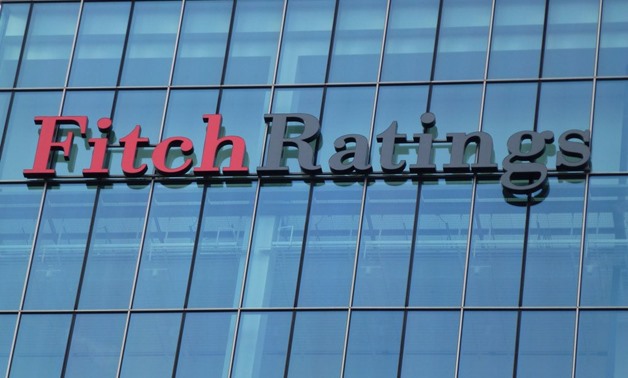
Fitch Ratings- SolvencyIIWire- via Flickr
CAIRO – 21 March 2019: Fitch Ratings upgraded Egypt's Long-Term Foreign-Currency Issuer Default Rating (IDR) to B+ from B, with a stable outlook.
“Egypt has made further progress in implementing economic and fiscal reforms, which are driving improved macroeconomic stability, fiscal consolidation and stronger external finances,” Fitch clarified in a report, noting that the authorities will complete the three-year IMF Extended Fund Facility (EFF) in 2019.
According to Fitch, these reforms will continue to generate better economic outcomes beyond the IMF agreement as general government debt/GDP is on a downward path, underpinned by structural improvements to the budget and the emergence of primary budget surpluses.
It expected spending on wages, subsidies and interest to fall by almost 5 percent of GDP from June 2016 to June 2020. “Monetary policy is targeting single-digit inflation and international reserves have risen to six months of current external payments.”
It also anticipated the budget deficit to decline to around 8.6 percent of GDP in fiscal year 2018/19, with a primary surplus of 1.6 percent of GDP, close to the government target of 2 percent of GDP.
The report stated that during the first half of fiscal year 2018/2019, spending on subsidies and social benefits was flat in nominal terms, expecting subsidies and social benefits spending to fall by 1.1 percent of GDP in 2018/2019.
It added that interest spending continued to limit consolidation, but was in line with budgeted amounts. Overall, revenue grew by 28 percent annually and expenditure by 17 percent annually.
As per the proposed budget of 2019/2020, the report reviewed that the budget targets a primary surplus of 2 percent of GDP and a budget deficit of 7.3 percent of GDP.
“The consolidation will mostly come from lower interest payments because of the disinflation trend, lower interest rates and lower debt as well as another round of subsidy reforms, including the introduction of an automatic fuel tariff adjustment mechanism. Further moderation of the wage bill/GDP and continued efforts to improve the tax administration will also contribute,” the report clarified.
“In FY20 we expect wages and compensation to fall below 5 percent of GDP, down from an average of 8 percent in FY15-FY16, underpinned by the civil service law. We expect subsidies and social spending to fall to 5.3 percent in FY20, from 8 percent in FY17, following several rounds of tariff hikes across utilities and other regulated prices,” it said.
“Interest payments are likely to peak in FY19 at 10.2 percent of GDP, before falling by at least 1pp of GDP in FY20. The main risk to policy slippage would be a return of political instability and/or a negative shock to economic growth,” the report read.
Moreover, it forecasted average inflation of 12 percent and 10 percent in 2019 and 2020, respectively, building in another round of subsidy reforms in June-July 2019.
“We forecast that real GDP growth will remain robust at 5.5 percent in FY19 and FY20, with risks tilted slightly to the downside,” the report noted.
It also projected Egypt's external debt service to average around $10 billion or 12 percent of current external receipts in 2019-2020, in line with the current 'B' peer median.

Comments
Leave a Comment